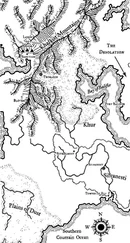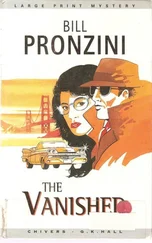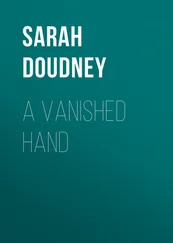The stairs down to the staffroom.
I shifted the shard of glass in my hand, holding it like a blade, realizing that I’d allowed myself to be drawn into this situation too quickly. I should have gone through Smart’s knife drawer, not grabbed some makeshift piece of window . But it was too late now. I was here. I’d been quiet on my approach, had made hardly any sound at all, but if Smart was clever enough to avoid detection for a year and a half, he was clever enough to take advantage of any uncertainty. When I got to the door, I wrapped my fingers around the old, wrought-iron handle and stopped, just for a second, to prepare myself.
Then I opened it.
The smell was worse than I remembered, a deep, awful stench of decay that came up the stairs towards me and forced me back. I put a hand to my mouth and looked down into the dark, and it took everything I had not to turn around and walk out. Except you can’t leave. You can’t leave before bringing them back into the light . I felt air pass me at ankle level, icy cold, and as my mind started turning over, and I started to imagine what might be waiting, I realized it wasn’t completely silent: there was a soft noise, like a buzz. It sounded vaguely like electricity being pumped through the walls of the station.
Except it wasn’t electricity.
It was flies.
I started the descent. Halfway down, short of the curve in the stairwell, I felt an insect bump against my face, dozy in the airless room below. Another passed across the light of the phone, drifting in and out of its blue glow, and – as I got to the turn in the stairs – I could see more on the walls and ceiling. The smell was unbearable now, even with my hands at my face; a thick, tangy stink. And as the stairs came to an end and I stepped down on to the floor of the room, I saw why.
As I swung the torch around to my left, to where the counter had once stood, there was a slumped figure beneath it.
He was facing me, sitting up, his back against the wall, his head – though angled to one side – almost touching the counter. His feet were straight out in front of him. Above his mouth, in the space where his nose and one of his eyes should have been, was what remained. Mostly it was just a mess of blood and skin, the shotgun that had done the damage wedged between his thighs, one of his hands half caught in the trigger. The other side of his face was intact: an ear, a cheek, half a jaw, some of his freshly shaved head. On the floor next to him were a series of photographs: a Tube train pulling into an overground station; a boy eating on a platform; the same boy, much younger than before, with an ice cream; and an old man, his father, captured in black and white. Then, finally, clutched in his other hand, his fingers balled around it, was the red T-shirt with checked sleeves.
Edwin Smart.
74
I crouched down and glanced at Smart; at what was left of his head. It was featureless, the skin that was left like wallpaper falling away, the rest just a mess of blood and brain. Spatter fanned out in a semicircle above him, suggesting he’d put both barrels against the roof of his mouth. Stepping away, I moved to the stairs. In front of me, without the light from the phone, there was nothing but dark. I turned the display in my hand and started moving up. As I entered the ticket hall, I could see a square of light on the far side – the entrance – but either side of it, all around it, there was nothing but black.
A brief feeling passed through me, a strange, cognizant shiver, as if some part of me was sending out a warning, and I swung the light, left to right. When I did it a second time, I realized something: as I looked across to my right where the lift remained padlocked, the metal grate pulled across it, I saw a mark – a red dot – on the padlock, facing out towards me. I felt around in my pockets for the key I’d taken from Smart’s kitchen.
A matching red dot.
Is the lift shaft where he dumped the bodies?
I thought for a minute about opening up, because if this was where he’d put them, somehow it felt wrong to leave the bodies there, in the darkness, for any longer – but then I realized it probably dropped eighty feet, and if it was dark in the ticket hall, it was going to be even darker in the well of the lift. The police needed to handle it.
So I headed out.
Halfway up the concrete steps, I stopped again.
Footprints.
Mine were in the middle, right through the centre of the steps. These were off to the side, in a rough diagonal, from left to right. I hadn’t noticed them on the way down, but, when I got to the top of the stairs, I could see them clearly: wet prints, size eleven or twelve, a mix of mud from the line, and dust from inside the station. They were fresh. I could see a route in, and – just adjacent to that – I could see the person’s route out. I quickly moved through the undergrowth and on to the line.
No more footprints.
Heading back to the house, through the treeline, and into Smart’s garden, I saw the back door was still open, swinging gently in the breeze. Inside I stopped, edging across the office and looking in through the kitchen. Even without seeing it, I could hear that the front door was still open, wind passing through the house. I headed along the hallway. There was nothing out of place, no sign anyone had been inside, so I pushed the front door shut, softly bedding it in its frame, then returned to the rear of the house and did the same to the back door. The noise of rain faded instantly, restricted only to the windows, where it swirled in against the glass.
Suddenly the silence shattered as my phone started ringing.
I killed it instantly.
Waited.
I backed up against the kitchen counter, trying to give myself the best view of both the office and the hallway, and then a text came through. I looked down at the display. I didn’t recognize the number, but I knew instantly who it was from. Craw. Got your message. On our way. DON’T do anything stupid .
I dropped the phone back into my pocket. Too late for that . I padded through to the stairs, taking them two at a time all the way up. Paused on the landing. The rooms were empty, but I double-checked to be sure, then headed back down into the kitchen. Smart was dead. Sam and the others were probably at the bottom of a lift shaft. Which meant there was only one person unaccounted for.
Duncan Pell.
Then it came again. That same smell as earlier.
What is that?
I dropped to my haunches and started going through the cupboards again, seeing if there was anything collecting mould, any spilt liquids or rotting food. But Smart had kept his home in decent condition. I couldn’t put a finger on the odour, couldn’t quite define it in my head, but the closest I could get was the same as before: old dishcloths. That smell you got when they were screwed up into a ball and left, still stained with food and soaked with water, never quite drying, the odour just getting stronger. It wasn’t unbearable, just unpleasant.
I closed the door beneath the sink, got up and walked around the kitchen, running a hand along the edge of the worktop as I moved from one side to the other.
And then I felt something beneath my boot.
I looked down. A slight indentation in the floor, the size of a beer mat, about two feet in from the skirting boards. I prodded it with the toe of my boot. There was something in the middle of it: a bump. I leaned down, running a hand across it, and then – in my peripheral vision – noticed something else: the lino in the corner of the room hadn’t been set properly. It was curling up, as if it hadn’t been stuck down.
Or it had been placed back in a hurry .
I went through Smart’s knife drawer and picked out an old-fashioned potato peeler. Using the V-shaped end, I forced it down into the corner of the room, where the lino met the skirting board, and prised the lino away. It came out easily. I grabbed a handful of it and then pulled it back with me, edging across the kitchen. It unfurled like a layer of skin, peeling slowly away, revealing wooden floorboards underneath. The smell was stronger now, and I realized why: the floorboards had been wiped down, cleaned of whatever had spilled across them, but when the lino had been placed back on top, the floorboards hadn’t been dry. Despite that, despite the swipes left on their surface by the cloth, they were still in immaculate condition, oak panels laid perfectly from one side of the room to the other. Except for one square the size of a beer mat.
Читать дальше












